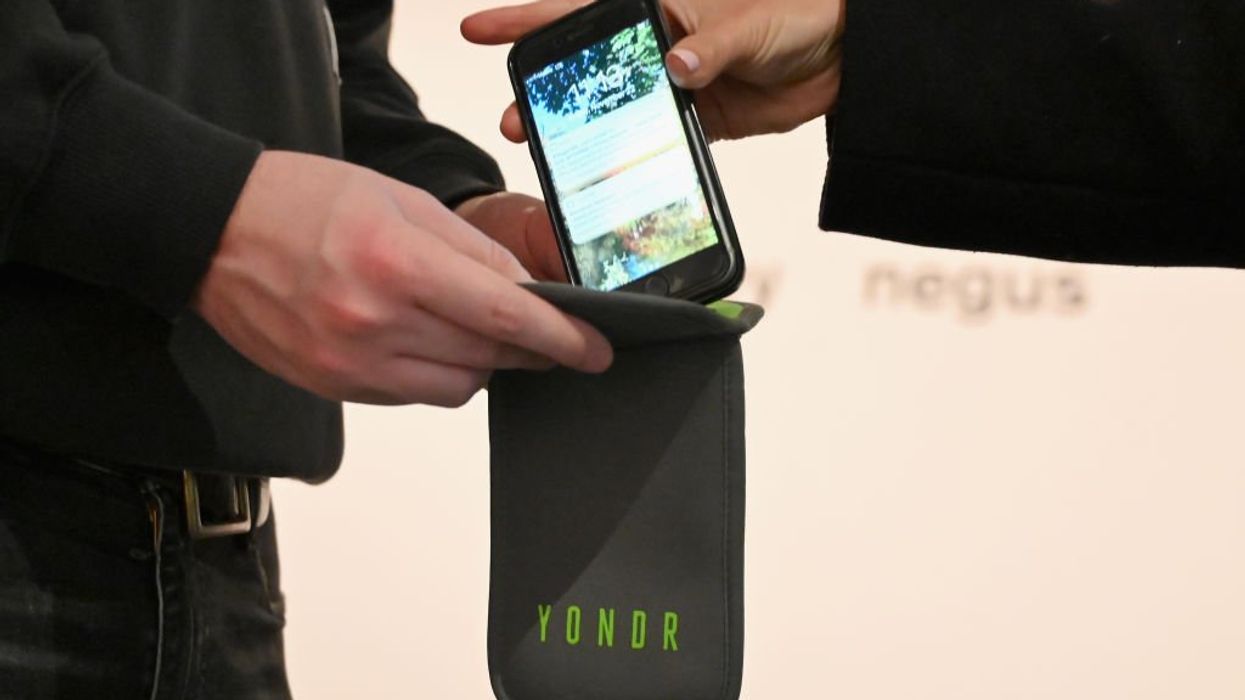
Photo by ANGELA WEISS/AFP via Getty Images

Akron Public Schools in Akron, Ohio, decided the district will expand a policy that locks students' cell phones away through the duration of the school day after a pilot program garnered overwhelmingly positive responses.
The Akron Board of Education approved funding for the Yondr program, the name of a company that produces magnetically locked cell phone cases often used in comedy clubs and other private venues.
According to ABC News 5 Cleveland, educators had grown weary of problems that arose from excessive cell phone usage in Akron schools.
“Fake social media threats have kept us very busy chasing nonsense,” the school district's director of security, Don Zesiger, said. “Staging fights and filming fights was a big problem for us. And then social media, bullying, and things that happened throughout the day.”
Pat Shipe, president of the Akron Education Association, said that students would even use phones to coordinate and let non-students in the building.
“We had seen in the past where students had arranged to meet outside people at various doors and let them into the building,” she said. But during the pilot program, which was trialed in the final months of the 2022-2023 school year, Shipe said officials saw "evidence in the buildings, in the classrooms, the hallways, of the Yondr program really bringing some calm and security."
Both staff and parents responded positively to the pilot and thought the children were spending too much time on phones.
Over 100 parents responded to a survey that found about 70% thought their kids were spending too much time on their cell phones and 75% who believed that phone usage in school had a negative effect.
School staff responded even more positively to the program, as almost 90% of 194 surveyed said that they agreed or strongly agreed the program should continue. At the same time, a whopping 96% believed students were more productive without phones.
Students who were opposed to the program had the expected responses, such as claiming they wouldn't be able to contact their families in the event of an emergency.
The program reportedly provided exceptions for field trips or students who need their phones for medical reasons, such as monitoring their insulin.
The district will pay $180,000 for the first year of the program and $141,000 for the second and third years.
Like Blaze News? Bypass the censors, sign up for our newsletters, and get stories like this direct to your inbox. Sign up here!
Andrew Chapados